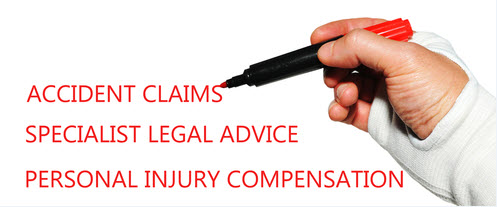Injured Children & Premises Liability

When your child is injured, it is natural for you as a parent to be frightened or worried. However, if your child is injured on someone else’s property, the nature of that injury can make a big difference in whether they might have a claim against the landowner or business owner for negligence. Understanding the law that governs these issues may be a good idea for a parent, especially in Florida, where the rate of accidents involving children is quite high.
Duties of Landowners
Under Florida law, something called premises liability requires landowners and/or business owners to make their space safe for those who may come onto the property, though the obligation of what specifically is required will depend on the legal class that the person falls into. Florida law recognizes three – (1) invitees, who are people who come onto property for business purposes or for personal reasons of the owner’s, (2) licensees, who are people who are generally on property for reasons of their own (for example, a child retrieving a toy from their neighbor’s backyard with permission); and (3) trespassers, who are not authorized to be on the property.
Invitees generally enjoy the most protection under Florida’s premises liability law – an owner must make the property as safe as reasonable care allows for the invitee’s entry and use. Extreme effort is not required – if it can be shown that a landowner exercised reasonable effort and care to make their property as safe as possible, but someone was injured anyway, it will be much less likely that the owner will be held liable than if they did not. Licensees, comparatively, are owed only a warning that the property may not be safe, and trespassers are only owed the bare courtesy that the owner will refrain from willfully injuring them.
Exceptions for Children
While these standards are generally uniformly applied to adults, there are exceptions built into Florida law for children, who cannot be expected to understand all the nuances and specifics of premises liability law. The most commonly cited is the common-law doctrine of attractive nuisance, which holds that certain conditions or items on a person’s land can be interesting and attractive to children, and can thus cause them physical harm, though an adult would know to avoid it. Examples of attractive nuisances include swimming pools, construction sites, refrigerators or deep-freeze lockers, and any other natural or man-made condition that could carry ‘unreasonable risk’ of harm to a trespassing child.
If your child is injured by an attractive nuisance, you, as their parent, may bring suit as their ‘next friend,’ which is a concept in Florida law where a person may act for someone who is legally incapacitated (minors may not bring suit on their own). Proving liability in these types of cases can be difficult, but it is not impossible – a plaintiff must be able to show that the property owner knew of the condition in question and that it could be potentially dangerous to a child, and they must be able to show that the property owner did not act to remove the condition or make it safe, though it would have been reasonable to expect them to do so.
Seek Out Our Orlando Premises Liability Attorneys
If you are in a situation where your child has been injured, you need an attorney who both understands the law and who understands how difficult this ordeal can be for a family. Our Orlando premises liability lawyers at the Hornsby Law Group will work for your interests and try to obtain the fairest possible outcome, leaving you to focus on helping your child heal. Contact us today for a free consultation.
Resource:
flsenate.gov/Laws/Statutes/2012/823.08